Friday,
Jan 9
Berlin
-4°
Saturday,
Jan 10
Berlin
-8°
Sunday,
Jan 11
Berlin
-7°
Monday,
Jan 12
Berlin
-10°
Tuesday,
Jan 13
Berlin
1°
Wednesday,
Jan 14
Berlin
2°
MORE IMPORTANT INFORMATION ABOUT YOUR TRAVEL TO Berlin
The Train station is located at the center of Berlin
Berlin is the capital and largest city of Germany by both area and population. Its 3,769,495 (2019) inhabitants make it the most populous city proper of the European Union. The city is one of Germany's 16 federal states. It is surrounded by the state of Brandenburg, and contiguous with Potsdam, Brandenburg's capital. The two cities are at the center of the Berlin-Brandenburg capital region, which is, with about six million inhabitants and an area of more than 30,000 km², Germany's third-largest metropolitan region after the Rhine-Ruhr and Rhine-Main regions. Berlin straddles the banks of the River Spree, which flows into the River Havel (a tributary of the River Elbe) in the western borough of Spandau.
Source:
WikipediaADDITIONAL INFORMATION ABOUT Nuremberg
The Train station is located at the center of Nuremberg
Nuremberg ( NEWR-əm-burg; German: Nürnberg [ˈnʏʁnbɛʁk]; Austro-Bavarian: Niamberg; East Franconian: Närrnberch or Nämberch, locally Närmberch) is the second-largest city of the German federal state of Bavaria after its capital Munich, and its 511,628 (2016) inhabitants make it the 14th largest city in Germany. On the Pegnitz River (from its confluence with the Rednitz in Fürth onwards: Regnitz, a tributary of the River Main) and the Rhine–Main–Danube Canal, it lies in the Bavarian administrative region of Middle Franconia, and is the largest city and the unofficial capital of Franconia. Nuremberg forms a continuous conurbation with the neighbouring cities of Fürth, Erlangen and Schwabach with a total population of 798,867 (2018), while the larger Nuremberg Metropolitan Region has approximately 3.6 million inhabitants. The city lies about 170 kilometres (110 mi) north of Munich. It is the largest city in the East Franconian dialect area (colloquially: "Franconian"; German: Fränkisch), Nuremberg was one of the host cities of the 2006 FIFA World Cup. There are many institutions of higher education in the city, including the University of Erlangen-Nuremberg (Friedrich-Alexander-Universität Erlangen-Nürnberg).
Source:
WikipediaImages of the trains for your trip


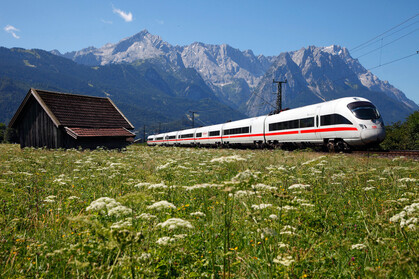

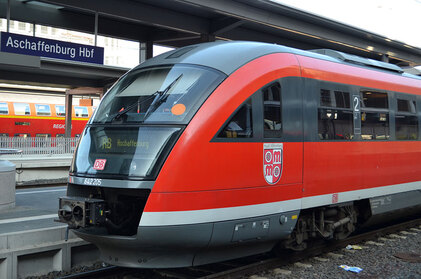







Where Can You Travel With Us?
TAKE A LOOK AT OUR MAP
France
Italy
Netherlands
Luxembourg
Austria
Germany
Belgium
Switzerland
Denmark
Sweden
Norway
Hungary
Czech
Ukraine
China
Active
France, Italy, Netherlands, Luxembourg, Austria, Germany, Belgium, Switzerland, Denmark, Sweden, Norway, Hungary, Czech, Ukraine, China
Upcoming
USA, Canada, Spain, Poland, Japan
Other Train Trips From Nuremberg

Nuremberg to Dresden

Nuremberg to Zennern

Nuremberg to Offenbach Main East
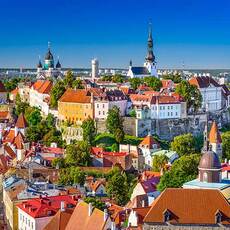
Nuremberg to Bad Neustadt Saale

Nuremberg to Bad Hersfeld
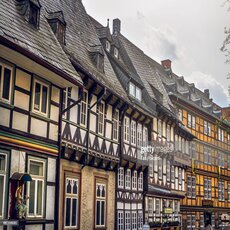
Nuremberg to Cadolzburg
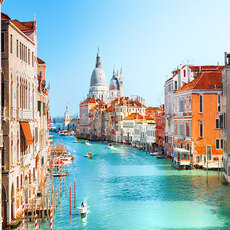
Nuremberg to Calw

Nuremberg to Renningen

Nuremberg to Oelde
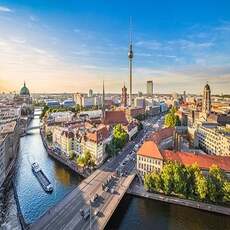
Nuremberg to Donaueschingen

Nuremberg to Erkelenz

Nuremberg to Nonnenhorn

Nuremberg to Unterfohring

Nuremberg to Riedlingen

Nuremberg to Nordhausen
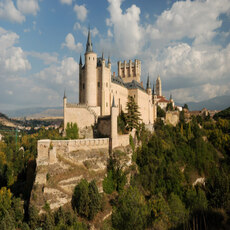
Nuremberg to Dusseldorf Bilk

Nuremberg to Kettwig

Nuremberg to Dresden Business Park

Nuremberg to Wuppertal Zoological Garden

Nuremberg to Waldkraiburg
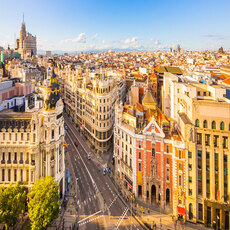
Nuremberg to Weimar

Nuremberg to Bubenreuth
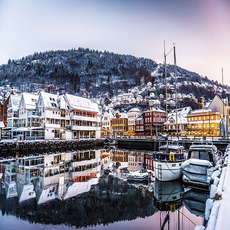
Nuremberg to Triberg
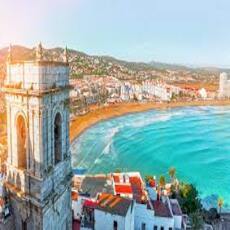
Nuremberg to Leese Stolzenau

Nuremberg to Annaberg Buchholz Mitte
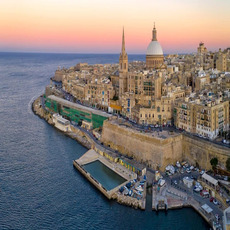
Nuremberg to Barleber See

Nuremberg to Grotzingen

Nuremberg to Karlstadt Main

Nuremberg to Scharbeutz
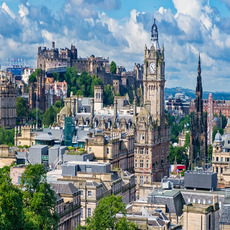
Nuremberg to Gau Algesheim
WHY YOU SHOULD TRAVEL BY TRAIN?
To travel from Nuremberg To Berlin, trains would be the best travel choice, for several reasons:
1
Eco-Friendly
Trains are the most environmentally-friendly way of transport to the EU Environment Agency. They are powered by electricity, which is renewable and has a low environmental impact.
2
Speed
Travelling by train is in most cases the fastest way to go from Rome to Milan. Trains usually travel at high speeds, making them the fastest way to get from one place to another.
3
Safety
Travelling by train is one of the safest forms of transport. Trains are heavily regulated and monitored, making them safer than other forms of transport.
4
Price
Travelling by train is often cheaper than other forms of transport, such as flying or taking a bus. Trains are often subsidized by the government, making them cheaper than other forms of transport.
5
Luggage
Travelling by train is a great way to transport luggage. Trains usually have plenty of space for luggage and they are usually safe and secure.
6
Luggage
Travelling by train is often faster than other forms of transport, such as driving or taking a bus. Trains usually travel at high speeds, making them the fastest way to get from one place to another.
7
Comfortability
Travelling by train is usually very comfortable. Trains usually have comfortable seating and plenty of legroom, making them a great way to travel.
8
Comfortability
Travelling by train is a great way to get some sleep. Trains usually have comfortable seats and plenty of legroom, making them a great way to get some rest while travelling.
9
WIFI
This is not necessarily the most important when you travel since we prefer to tell you to enjoy your travel without your phones, but on trains, you can find WIFI onboard, so you remain connected to the internet if you choose to.
THESE ARE THE TRAIN OPERATORS WE WORK WITH




















